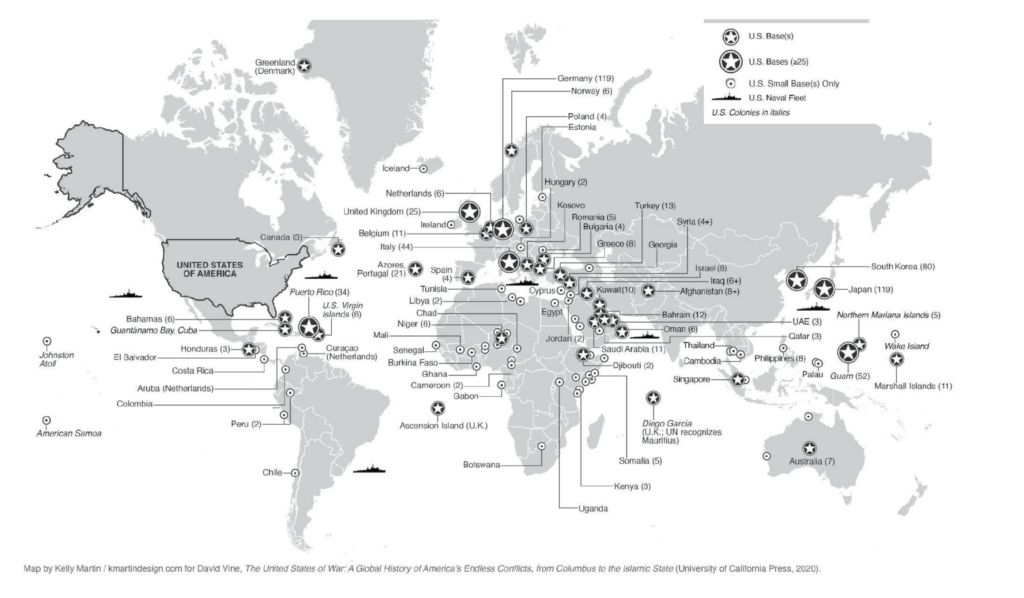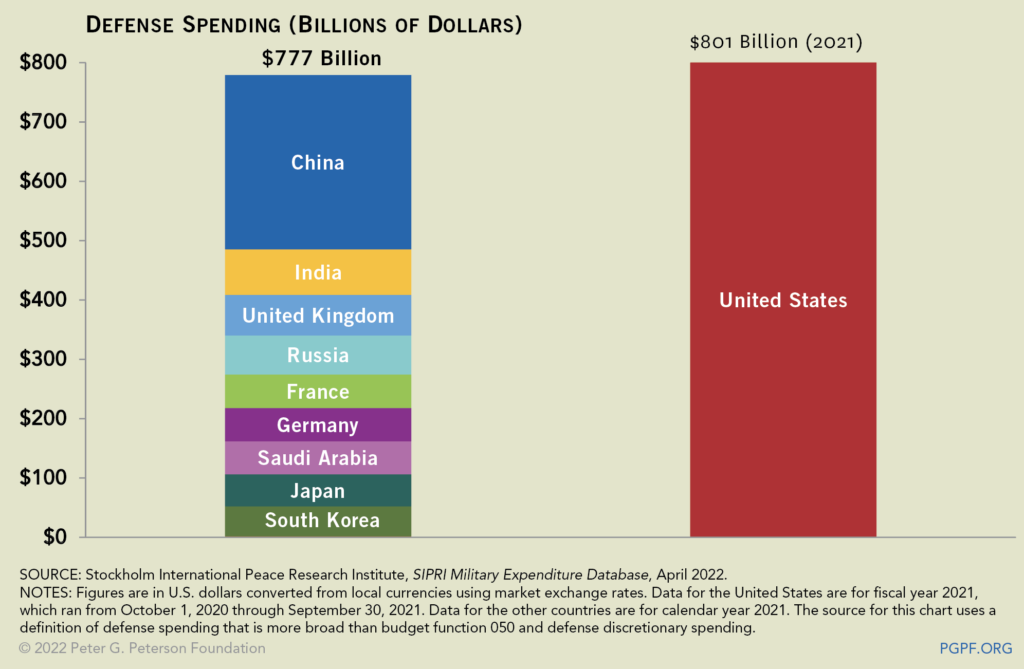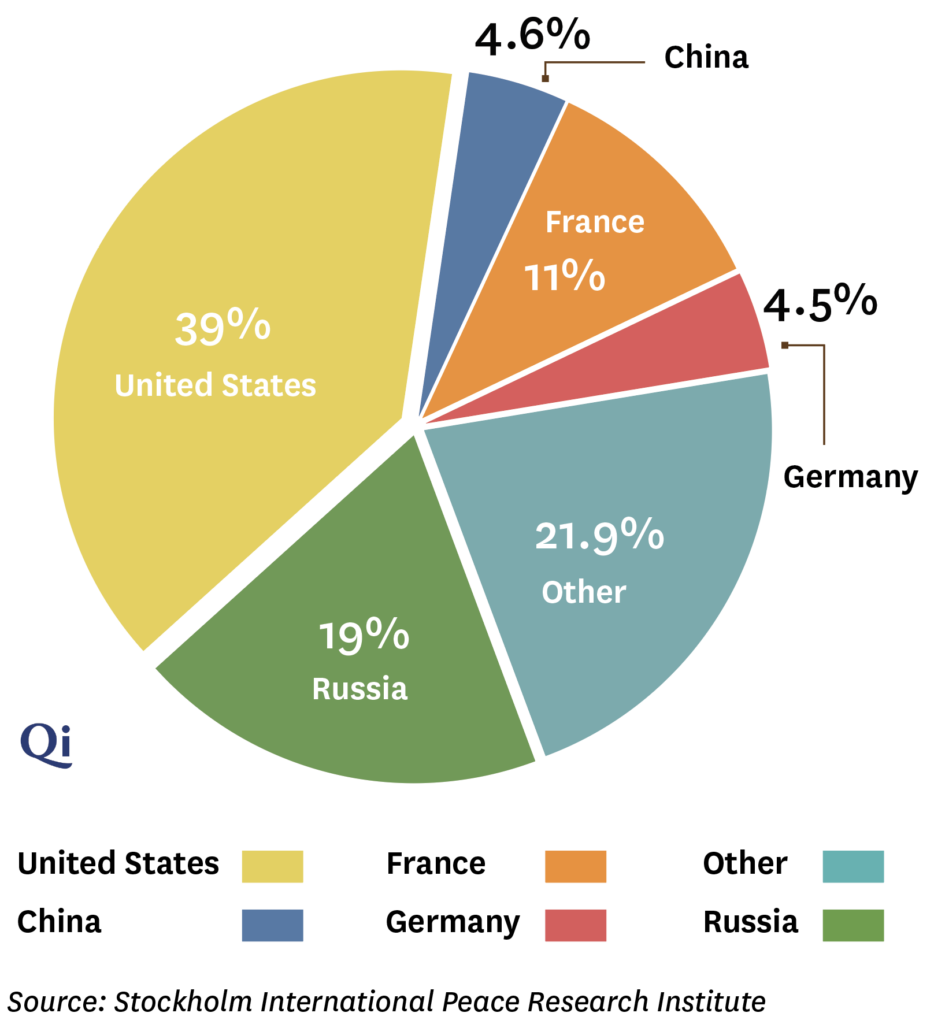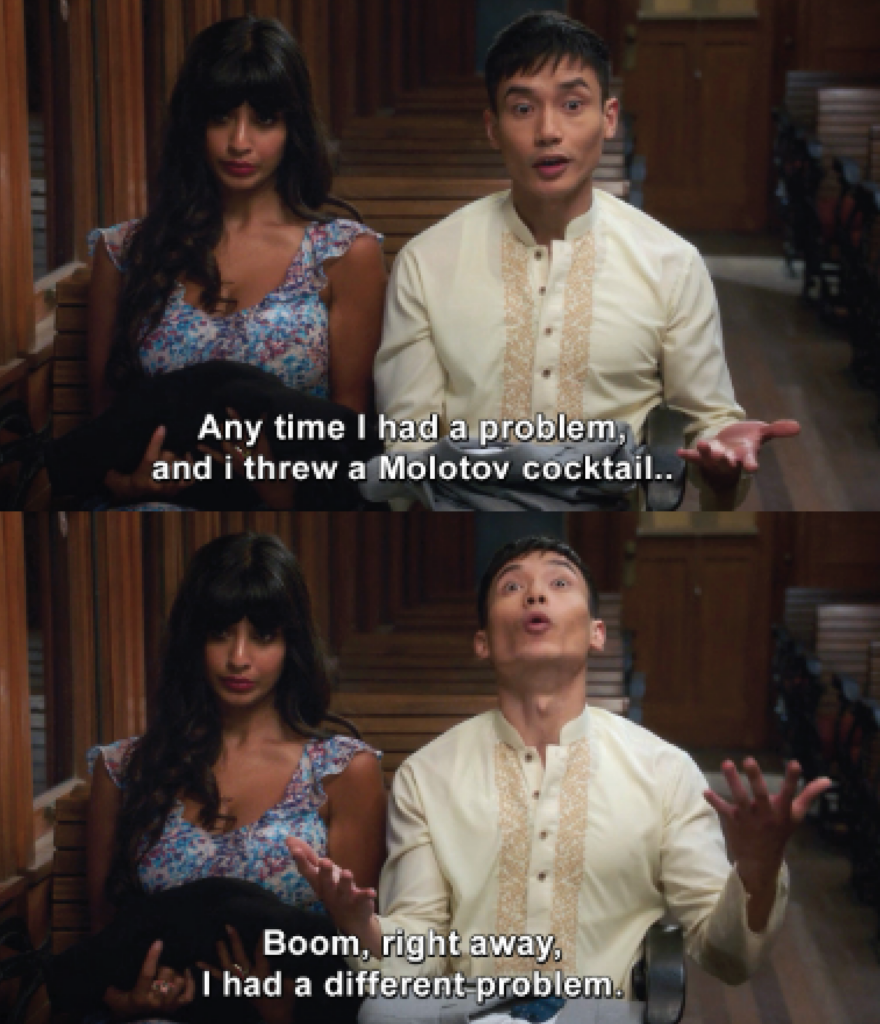Last updated:
In both our lives and our stories, war has become too easy. It’s ubiquitous on our news, in our foreign policy, and on our TV shows. But diplomacy makes for great drama, and by showing audiences alternative solutions in the stories we write, we can flip the script, help broaden the discourse and break the cycle of endless war.

The United States Spends More on Defense Than the Next Nine Countries Combined (2021)

- The U.S. military footprint extends to approximately 750 military installations in foreign countries and U.S. territories. By comparison, Russia has two to three dozen and China five. —Quincy Institute for Responsible Statecraft
- Roughly two-thirds of current wars—34 out of 46—involve one or more parties armed by the United States. —Quincy Institute for Responsible Statecraft
- In the U.S. wars since 9/11:
- More than 929,000 people have died
- 38 million have been turned into war refugees or displaced persons
- The U.S. government has spent $8 trillion and is conducting counterterrorism activities in 85 countries. —Watson Institute for International & Public Affairs/Brown University
The U.S. is spending more, even considering inflation, than was spent during the height of the Vietnam and Korean wars.
Quincy Institute for Responsible Statecraft
U.S. Has Cornered the Market as Arms Seller (2017-2021)

War Profiteering

- Not everyone has paid the same price. Some have profited.
- Defense stocks outperformed the stock market by 58% during the Afghanistan War.
- $10,000 invested in weapons stocks the day President George W. Bush initiated a U.S. military response to the 9/11 terrorist attacks would now be worth $97,295. –The Intercept
- The Pentagon spent over $14 trillion since
- the start of the War on Terror. Between one-third to one-half of those tax dollars went to for-profit Pentagon contractors. –Watson Institute for International& Public Affairs/Brown University

Destroying the Climate
U.S. military emissions are about 51 million metric tons, CO2 equivalent, annually in the last two years, larger than the emissions of most countries, and the largest user of fossil fuels and energy in the U.S. government. –Mother Jones
Big D* Energy
- Statecraft makes for great drama. And so does every one of the facts listed above.
- Pro-aggression stories that are “ripped from headlines” or that mimic “real world” scenarios only act to recycle status quo ideas about the benefit of military violence.
- By showing audiences alternative solutions in the stories we write, we can flip the script, help broaden the discourse and break the cycle of endless war.
- Stop treating characters who push for more war as heroes. It’s equally or more heroic and interesting to prevent unnecessary death and destruction.
- Let’s stop telling stories of consequence-free acts of war.
- Always remember, militarization is the Molotov cocktail of solutions!

*Diplomacy!

